Twelve year old Anna must dig deep into her Hawaiian roots in order to save her best friend and her island from an angry fire goddess.
Ethnic Identity
What Souls Are Made Of

Two lost souls cut off from their heritage find solace in each other in this remix of the gothic novel Wuthering Heights.
What If A Fish
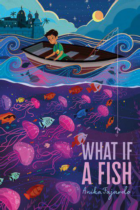
Half-Colombian Eddie Aguado has never really felt Colombian. Especially after Papa died. And since Mama keeps her memories of Papa locked up where Eddie can’t get to them, he only has Papa’s third-place fishing tournament medal to remember him by. He’ll have to figure out how to be more Colombian on his own. As if by magic, the perfect opportunity arises. Eddie—who’s never left Minnesota he is invited to spend the summer in Colombia with his older half-brother. But as his adventure unfolds, he feels more and more like a fish out of water. Figuring out how to be a true colombiano might be more difficult than he thought.
A Suitcase Of Seaweed And More
In A Suitcase of Seaweed, an NYPL Best Book for the Teen Age originally published in 1996, Janet Wong explored issues of identity in sections defined as Korean Poems, Chinese Poems, and American Poems. In this new book, A SUITCASE OF SEAWEED & MORE, readers will find the original text plus new reflections, insights, and writing prompts accompanying each poem.
Featured in WOW Review Volume XIII, Issue 1
All The Ways Home
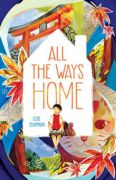
This is a book about what home means to us―and that there are many different correct answers.
Islandborn
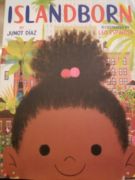
Lola was just a baby when her family left the Island, so when she has to draw it for a school assignment, she asks her family, friends, and neighbors about their memories of her homeland…and in the process, comes up with a new way of understanding her own heritage.
Featured in WOW Review Volume XI, Issue 1.
Islandborn was featured in WOW Currents Rompiendo nuestra burbuja: An International Perspective on Culturally Specific Literature from the United States.
My Mom Is A Foreigner, But Not To Me
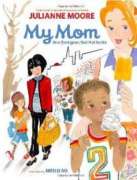
A foreign mom may eat, speak, and dress differently than other moms. She may wear special clothes for holidays, twist hair in strange old-fashioned braids, and cook recipes passed down from grandma. Such a mom may be different than other moms, but she is also clearly the best.
Windows into My World: Latino Youth Write Their Lives
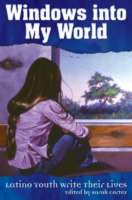
“They never thought I would leave. I remember tia Olivia calling the house to let me know that I was betraying my family by leaving to study. But unlike both of my parents, I wasn’t leaving the country to let years pass before seeing my family again; and unlike my mother, I wasn’t leaving to get married.” In this short but powerful memoir, Marisol explains that she knew her departure for Yale would create conflict with her family, but she is surprised that her leaving leads to a bond with her parents that she could never have imagined. Marisol is one of thirty-six Latinos whose writings are included in this collection. They all uniquely document their struggles with the issues that young people encounter–friendship, death, anorexia, divorce, sexuality–but added to these difficulties are those specific to their ethnicity, such as adjusting to a new culture and language, and handling familial and cultural expectations that can limit their hopes and dreams but just as often enrich their lives. In one piece, a young woman muses about the safety in the hills of her native Honduras compared to the flat expanse of her new homeland: “When I venture back into these silver hills, no one can see where I’ve gone because of the curves of the winding streets. But when I walk the flat roads of America, people can watch me go, trace my path and witness the inevitable stumble.” These short essays written by young men and women from various Latino backgrounds–Mexican American, Puerto Rican, Dominican, Salvadoran–reflect the diversity of growing up Latino in the United States. Whether from a gay or straight, urban or rural, recent immigrant or third generation perspective, these illuminating pieces of memoir shine a light into the lives of young Hispanic adults.
